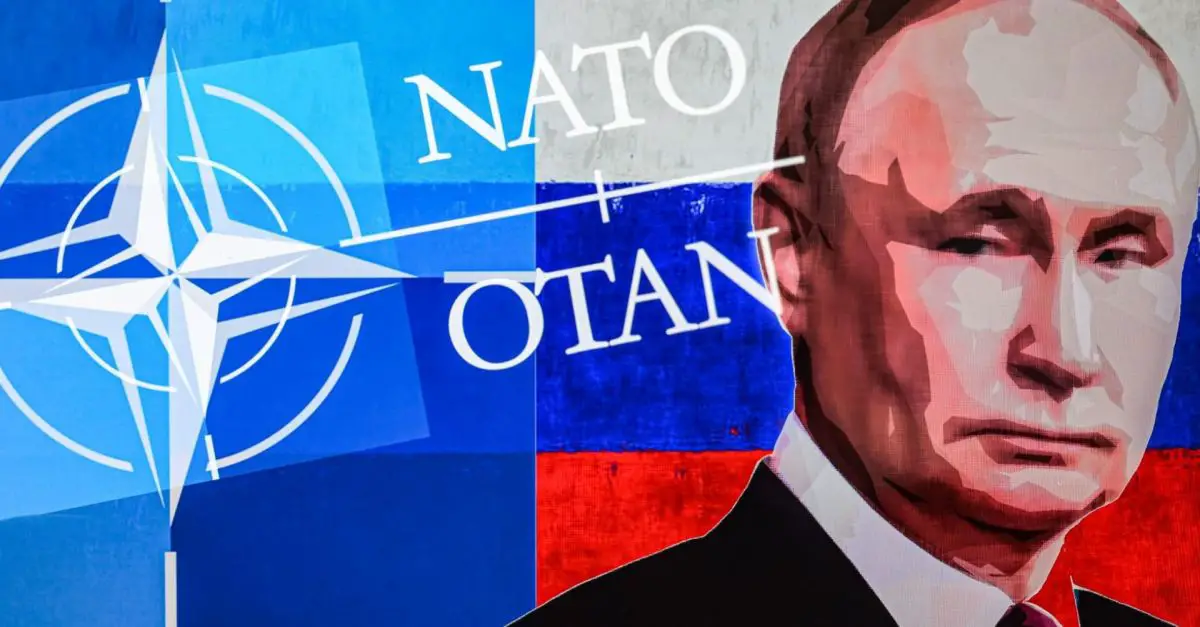Breaking news
Analysis : Russian sabotage done by strangers in NATO a new form of indirect war ?.
On May 5, 2024, the Financial Times revealed the existence of notes from European intelligence services informing governments of imminent sabotage actions of Russian origin in Europe. Today, the Institute for the Study of War reports NATO leaders' warnings about this growing risk as support for Ukraine intensifies.
Follow Army Recognition on Google News at this link

Illustration of indirect conflict beween NATO and Russia (Picture source: Atlantic conflict)
The Norwegian Police Security Service (PST) and the Norwegian Intelligence Service (NIS) warned on May 22, 2024, of an increased threat of Russian sabotage against Norwegian arms suppliers and other organizations involved in delivering military equipment to Ukraine.
Inger Haugland, head of counter-espionage at PST, stated that PST had warned Norwegian arms suppliers to be on high alert and had previously warned that Russian actors were preparing sabotage acts in western Norway, where Norwegian naval bases and oil and gas infrastructures are located.
Haugland stated that Russian security services have used non-Russian nationals to conduct sabotage in Poland, Germany, and the United Kingdom to achieve denial.
Polish Prime Minister Donald Tusk warned on May 20 that Polish authorities had recently arrested and charged nine suspects for engaging in acts of sabotage in Poland on behalf of Russian security services.
Tusk also warned on May 21 that Russian actors were planning to smuggle thousands of migrants from Africa into Europe and that more than 90 percent of those recently arrested for illegally entering Poland had Russian visas in their passports.
Russian officials recently attempted to create an artificial migrant crisis at the Finnish border in late 2023 to destabilize NATO and the European Union (EU). Russian security services are likely intensifying their sabotage operations in European countries to disrupt the resumption of U.S. security aid to Ukraine and will likely continue their hybrid operations aimed at fomenting discord in Europe ahead of the European Parliament elections scheduled for early June 2024.
However, these actions are not carried out randomly. Indeed, the Russians justify their actions by the fact that the states targeted by these actions, as well as cybercrime acts, are part of the doctrine of Russian forces, commonly called the Gerasimov Doctrine. This doctrine involves fighting on physical and immaterial fronts. The immaterial domains are numerous but have the peculiarity of being intangible. They can take the form of an evident and visible struggle in the cyber domain but also a more subtle struggle in the field of influence and opinion manipulation.
Thus, the Russians aim to influence the upcoming elections in Europe. Legally, these actions are akin to acts of war, but there is an internal legal action within the Russian government to reinforce the identification and protection of Russian citizens abroad.
The Kremlin seems to be developing a system to legalize the status of so-called "compatriots of Russia abroad," probably as part of its efforts to establish information conditions to justify new aggressions and hybrid operations abroad to "protect" Russia's compatriots.
Yevgeny Primakov, Director-General of the Russian Federal Agency for the Commonwealth of Independent States (CIS), Compatriots Living Abroad, and International Humanitarian Cooperation (Rossotrudnichestvo), stated in an interview with the Kremlin's news wire TASS published on May 22 that Rossotrudnichestvo is developing an "electronic compatriots card" program that will allow Russian compatriots abroad to access unspecified government services, visit and work in Russia, and even apply for Russian citizenship in the future.
The identification of these Russian citizens abroad remains a major issue for the Russians, as these individuals are established abroad and can constitute perfect agents of influence. However, NATO intelligence services are fully aware of the nature of this status.
Relations between NATO and Russia seem on the brink of rupture, making the situation particularly tense, as the uncertainty surrounding the red lines drawn, support, Western countries' intervention in the Ukrainian conflict, and Russian reactions pose multiple scenarios leading to the current arms race in Western Europe. The outcome of these early diplomatic ruptures cannot be defined in advance; however, a normalization of this diplomatic rupture increasingly seems to be confirmed.


























